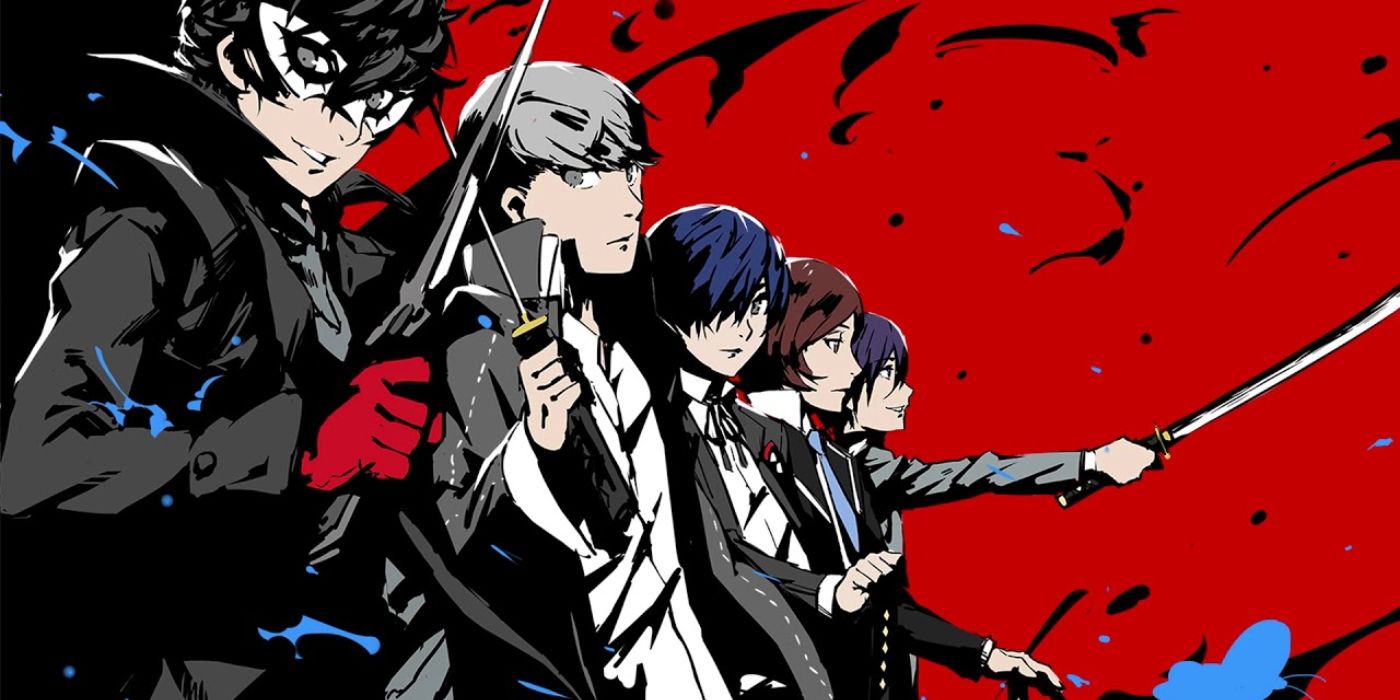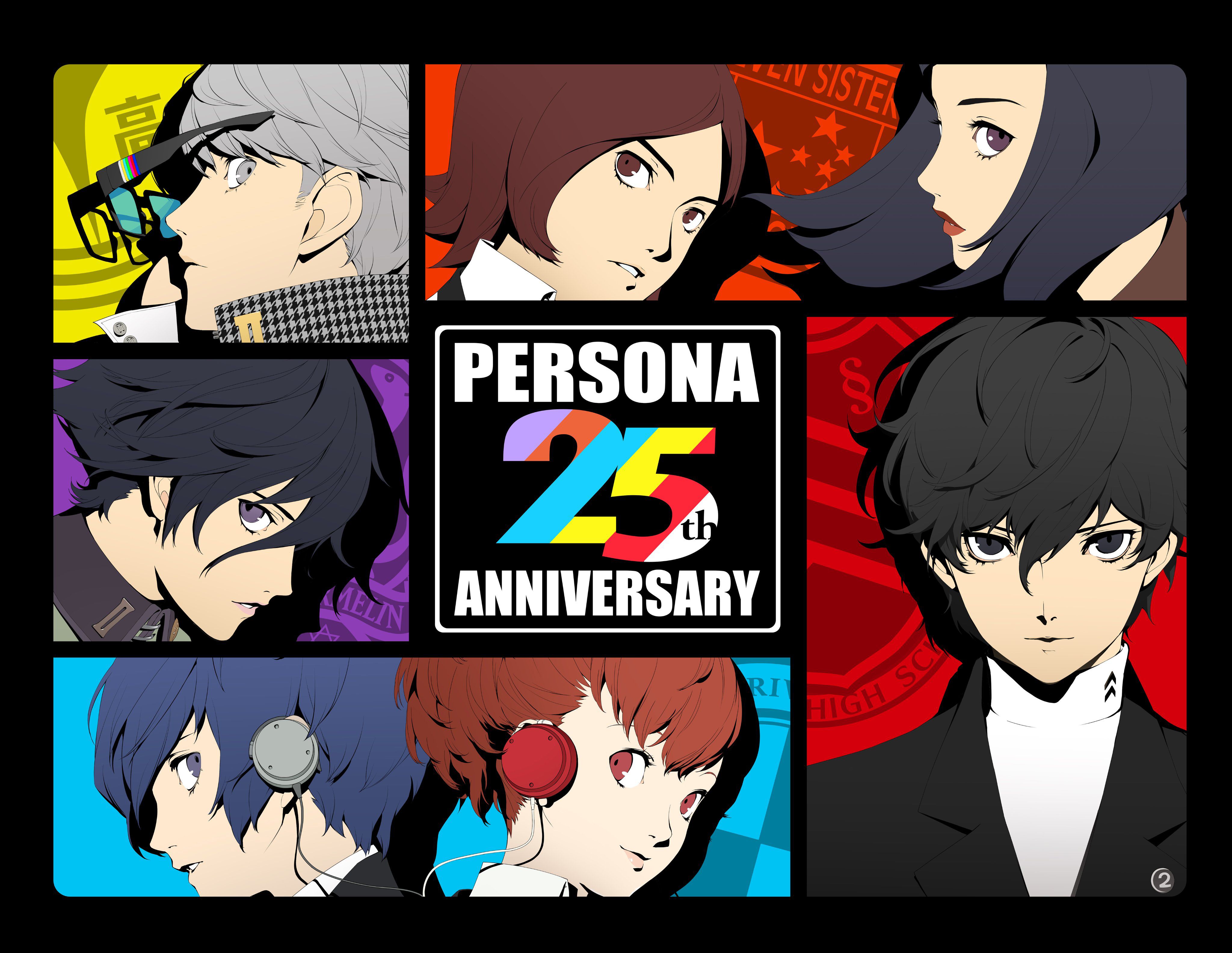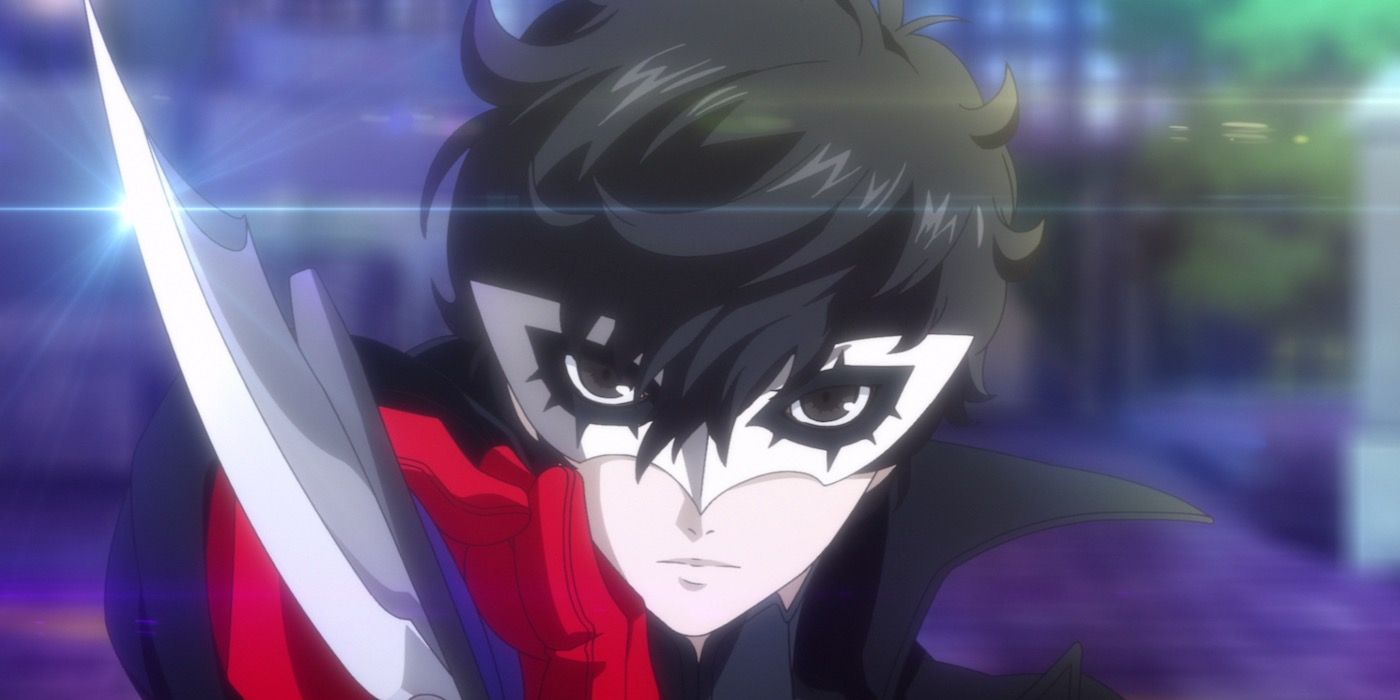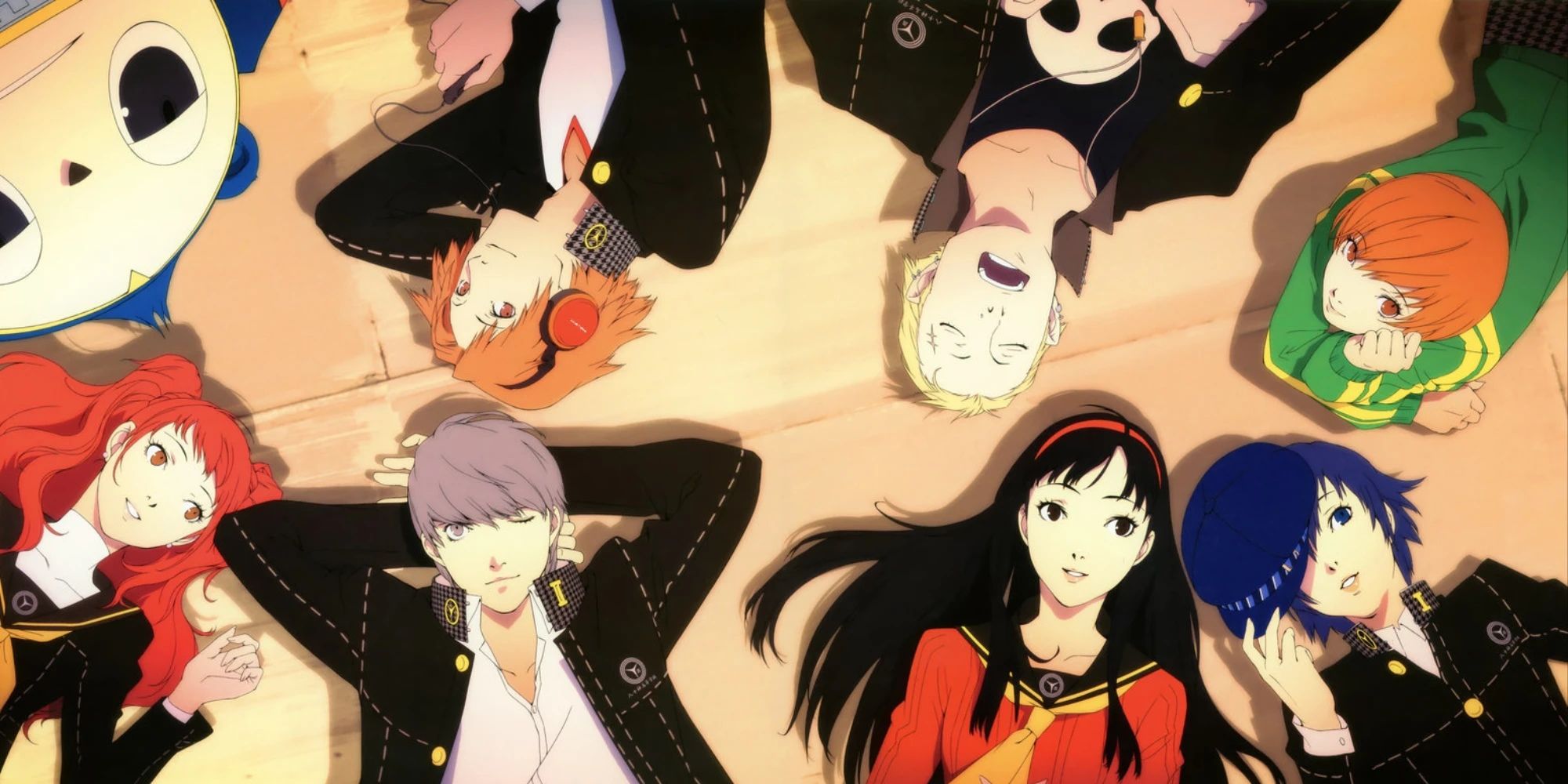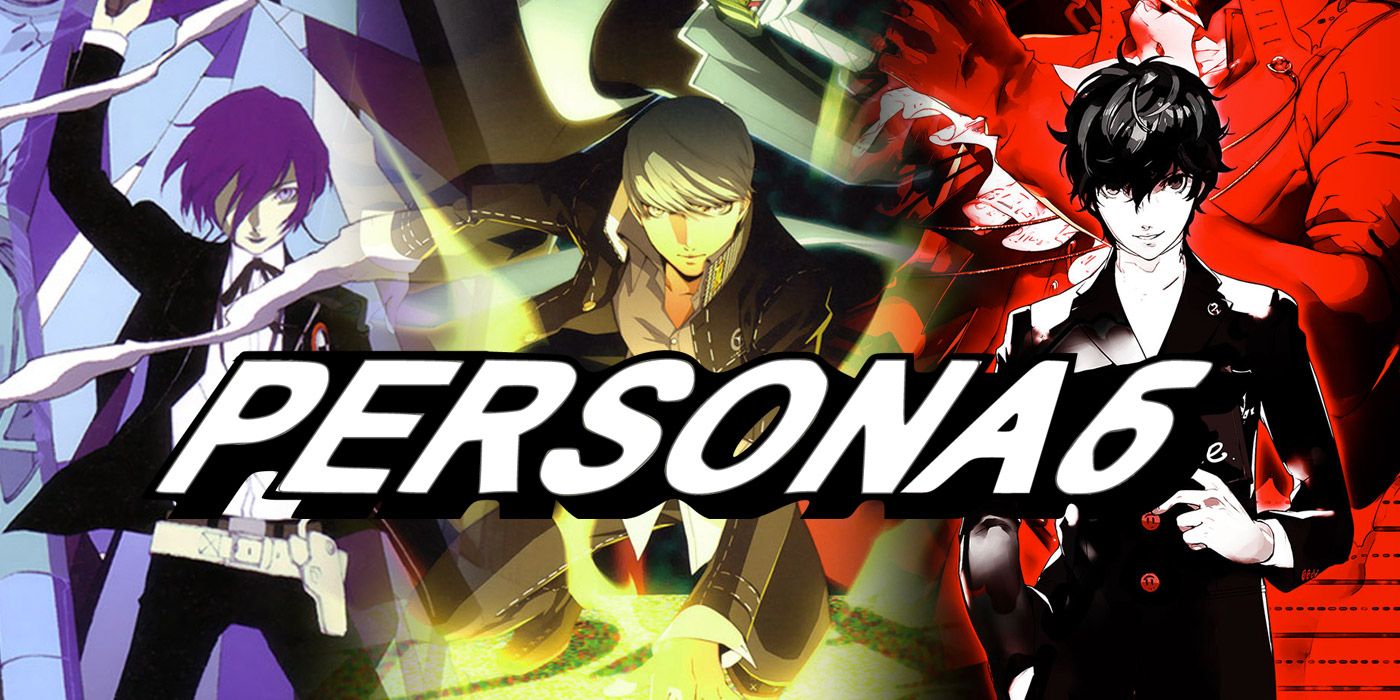Atlus' iconic Persona games have become some of the most recognizable titles in the JRPG genre, and have become incredibly popular with fans all over the world, especially in the past several years. Each Persona game has surpassed the previous one, which isn't an easy feat, but Atlus has been committed to innovating the JRPG genre while honoring its classics.
The Persona series has continued to use a lot of traditional JRPG mechanics, including turn-based combat, a combination of spoken and text dialogue, and an emphasis on narrative. With a few small exceptions made for spin-offs, the Persona series has consistently included many of these traditional elements. Another feature that's remained consistent in Persona JRPGs is the silent protagonist.
The History of the Persona Series and the Silent Protagonist
The original Persona game was released in 1996, which means the series will be hitting its 25th anniversary this September. Atlus has promised a year-long celebration and teased seven new upcoming projects; obviously, many fans are hoping that one of those projects will be Persona 6. There are a lot of ways Persona 6 could be different from its predecessors, but there are several traditions that the series has clung to, including the silent protagonist.
From the very first Persona protagonist Naoya Toudou (also known as "Boy with Earring") to Persona 5's Joker, all of the Persona protagonists have been primarily silent. In theory, the silent protagonist allows a player to identify closely with the protagonist and project their personality onto the character. These blank slate protagonists allow each player to have a unique experience.
There are a few dialogue options here and there that can help shape the character's personality, and of course the story shapes them as well. For the most part though, players are supposed to make the main character their own. It's debatable how well this works in the Persona series, especially considering the protagonists don't change regardless of player behavior. For better or for worse, the silent protagonist has been consistent throughout the Persona games.
Fans Have Always Been Divided on Silent Protagonists
Fan opinions on the silent protagonist idea are all over the place. For some, hearing other characters voiced and then not hearing anything from the protagonist is jarring, unnatural, and winds up ruining the immersion. For other fans, there's nothing wrong with it and the execution of the silent protagonist has only improved with time. Joker's popularity is evidence that it can work, but some feel it would be cooler if Joker acted like the charismatic leader he's billed as.
There are many other games that have silent protagonists, but it works differently in other types of RPGs. The protagonist in Skyrim is also silent, but the effect is different. In Skyrim, players have a ton of control over their character's personality. The options are endless; the Dragonborn can be a ruthless mass murderer or adopt orphans - or both. The same is not true of the Persona protagonists, and it's worth noting that even Bethesda chose to move to a voiced protagonist in Fallout 4.
Most think it's a good thing that the Persona protagonists have actual personalities, but the silent protagonist tradition makes it a double-edged sword. Developed characters are great for storytelling, but not quite as great for making the player embody the character themselves. It changes the feel of the game, and it might be time for Persona to finally make the switch to a speaking protagonist.
In Persona, the Silent Protagonist is Not a True Blank Slate
In the original Persona game, the protagonist was more of a blank slate. For silent protagonists to accomplish their purpose, being a blank slate is important. As the series grew, the protagonists began having specific personality traits. This started as early as Persona 2: Innocent Sin with Tatsuya Suou. He's a quiet, brooding, rebellious type, and his personality is a stark contrast to extreme optimist Maya Amano in Persona 2: Eternal Punishment.
The trend continued in Persona 3, where the protagonist became known for his dark sense of humor and aloof attitude. Yu Narukami, the protagonist of Persona 4, is very different. Instead of being dark and brooding or overly optimistic, Yu is kind, reserved, and more mature than his fellow high-schoolers. Finally, Persona 5's protagonist Joker is commonly characterized as a "trickster," and is suggested to be flashy and charismatic. That's great, but it doesn't work quite as well when all he does is stand around and nod.
Having developed personalities for the main characters isn't a bad thing, especially because the protagonists in Persona games are the leaders of their groups. It doesn't make much sense for a group to select the dullest person in their company to act as the leader. However, giving them a specific personality means that the silent protagonist tool stops working.
In third-person linear RPGs where the protagonist's character traits drive the narrative, there's no point in having a silent protagonist. The player doesn't even have the option to impose their own personality on the character. Persona is an incredible JRPG series, but by trying to help the player embody the protagonist while simultaneously attempting to flesh out the character, Persona fails to successfully do either.
Persona 6 Should Abandon the Silent Protagonist Tradition
It's possible that fans will start hearing about the next installment soon, and if the previous Persona games are any indication, P6's popularity might even surpass Persona 5. It won't be the end of the world if Persona 6 continues to use the silent protagonist, but considering it has the opportunity to take advantage of the PS5's next-gen features and capitalize on Persona 5's success, it's likely a guaranteed hit that should take a couple of risks.
Some have speculated that Persona 6 could be a genre-defining title for JRPGs, but Atlus shouldn't play it safe. The next Persona game feels like it could be a turning point for the series and for the genre. The silent protagonist trope simply doesn't work with the type of storytelling the Persona games have done in the past. If Persona 6 lets the protagonist become fully fleshed out and actively lead the group, it could reach a whole new level of storytelling.
Persona 6 doesn't need to be "better" than Persona 5, but it does need to do something to set itself apart and become special on its own merit. Doing away with some of the things that have kept the series from reaching its full potential is a great place to start. Having a half-developed character that players can't really relate to isn't working, but getting rid of the silent protagonist in Persona 6 could turn that trend upside-down.
Persona 6 is in development.

